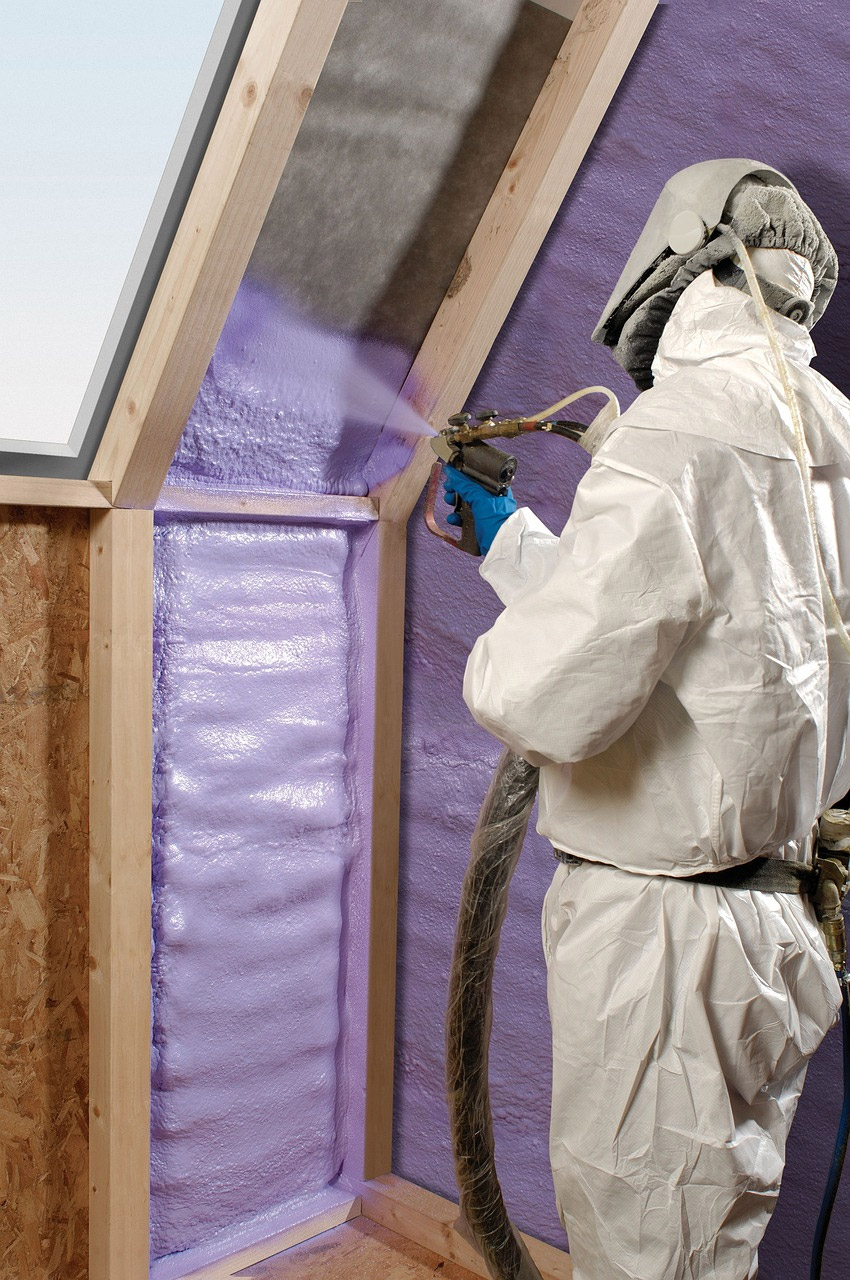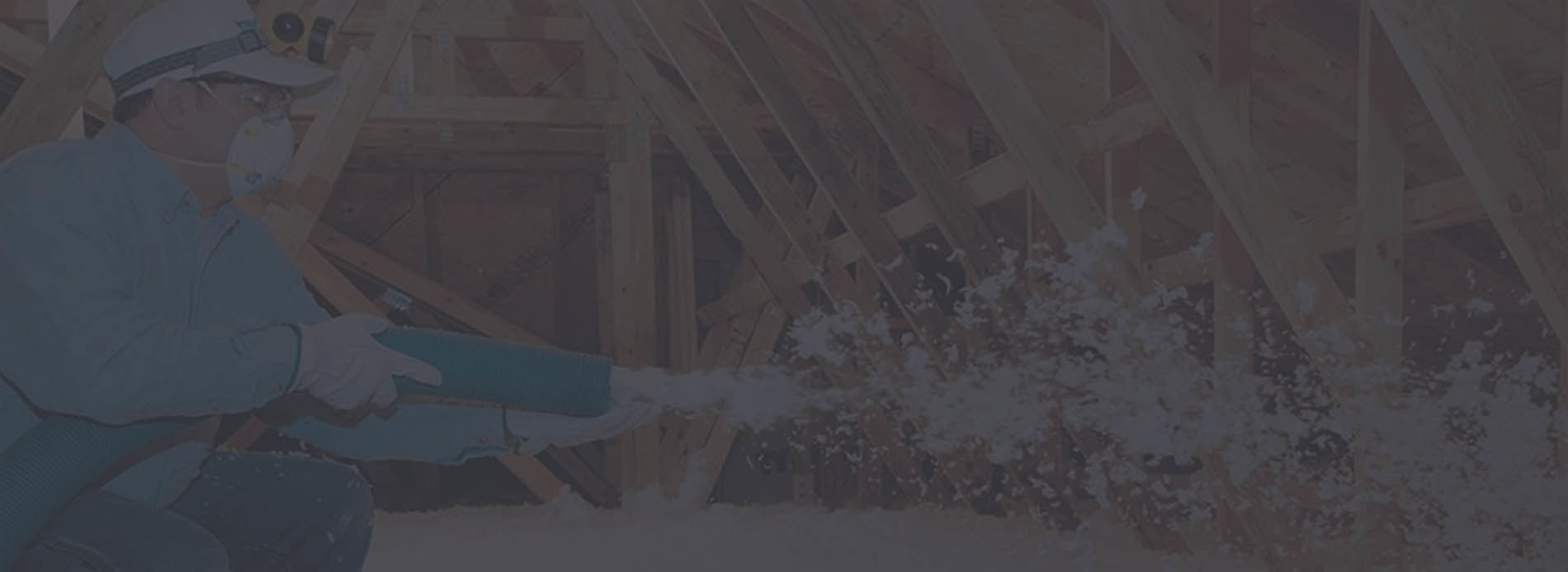
07 Feb How Insulation Can Reduce Your Energy Bills
Everybody is looking for ways to reduce their monthly expenses, and your energy bill is one of the prime targets. People try everything from running their appliances less, lowering their temps when they’re away from home, and covering their windows with plastic to prevent even a little bit of that warm air from escaping your home. However, one of the most overlooked ways to keep those energy bills down is hiding right inside of your walls. Insulation plays a huge role in significantly lowering your energy bills while increasing your home’s comfort.
Insulation is a huge part of your overall energy equation, and one of the best ways to figure out how to reduce those energy bills is to perform an energy audit in Denver. This will show you exactly where you need improvements, and how much insulation is playing a role in your energy costs and overall comfort. Whether you’re building a new home or just trying to figure out how to upgrade your existing one, understanding how insulation works and the benefits it can provide can be the key to creating a more efficient living space.
What is Insulation?
Insulation is a material designed to reduce the transfer of warm air from your home’s interior to the exterior, or vice versa. In the winter, you want to keep the warmer air in, just like you want to keep the warmer air out in the summer. Insulation works by creating a barrier that slows down that heat loss during the colder months and heat gain in the warmer times of the year. There are also a variety of forms that insulation comes in, and it can be installed in walls, ceilings, floors, and attics.
There is a definite science behind the creation of all insulation. This product is measured by its R-value, which is a measure of its thermal resistance. The higher the R-value, the more effective the insulation is at preventing the transfer of heat. A number of factors are used to determine a material’s R-value – such as the material’s density, thickness, and where it’s installed. Using properly installed insulation helps make sure your heating and cooling systems won’t be overworked. This is important on various levels because it makes sure your energy costs stay low while extending the lifespan of your appliances. That’s even more savings in the long run, as furnaces and air conditioning systems can be very expensive to replace.
How Insulation Impacts Energy Efficiency
Heating and cooling your home accounts for about 50-70 percent of the average home’s energy usage. Poor insulation allows more air to escape, forcing HVAC systems to work harder to maintain your family’s ideal, comfortable temperature. By sealing these gaps with effective insulation, your home will retain indoor air longer, reducing the need for continuous heating and cooling. The less your HVAC system has to work to keep your home comfortable, means the less money that comes out of your pocket each month.
Air leaks through gaps in windows, doors, and spots where the insulation is poor in the walls – and all of this contributes to your home’s overall energy waste. The insulation acts as a sealant, keeping the warm or cool air inside while minimizing waste. This not only helps you conserve energy within your home, but it also reduces your overall carbon footprint. By maintaining a stable temperature within your home, your HVAC system will cycle less frequently, prolonging its lifespan and reducing maintenance costs. Over time, those savings on maintenance costs can really add up, along with the lower monthly bill.
Key Areas to Insulate
Maximizing savings on energy bills comes from understanding where most of your heat is being lost or transferred. This is where an energy audit in Denver can reap big rewards. Finding these areas that are having the biggest impact will enable you to get the proper insulation to start saving money almost immediately. The attic is one of the most critical areas to insulate. Heat rises, meaning it’s going up into the attic and escaping through the roof. Insulating the attic can keep that warm air where it’s supposed to be. Properly insulating your attic has been proven to reduce your heating and cooling costs by up to 20 percent.
Walls make up a huge surface area of your home and can contribute to significant heat loss (or gain). Adding insulation to both the interior and exterior walls can greatly help temperature regulation. Insulating floors – especially above unheated places like garages or basements – can significantly reduce cold drafts and keep living areas comfortable. This also helps keep the temperature consistent from room to room. Windows and doors are also a place where there is a lot of heat transfer. Sealing gaps around the windows and doors with weather stripping or caulking can also help.
Different Types of Insulation
There are countless types of insulation, and all of them have their own distinct benefits. One of the most popular kinds is fiberglass insulation, which is commonly found in rolls that are affordable and easy to install. This is effective for all areas of your home, and can be found in an array of R-values. Spray foam insulation has also become popular in recent years, as it expands to fill gaps and cracks. This makes it ideal for those hard to reach areas, and is great for ensuring that the entire space is covered.
For those looking for an eco-friendly option, cellulose insulation is made from recycled materials. It’s typically used in attics and walls and can be treated for fire resistance. Mineral wool insulation is made of a non-combustible material. Also known as Rock Wool, this type of insulation also offers excellent thermal and soundproofing properties. In warmer climates, reflective insulation is becoming more popular. This type of insulation reduces heat gain by reflecting radiant heat rather than absorbing it. This is also most commonly installed in attics.
How to Insulate Your Home
Before you do anything to your home, it is important to conduct an energy audit in Denver. This will assess your home’s current energy efficiency. It will identify areas of heat loss so you’ll be able to identify the correct insulation solutions. After the audit, select the proper type of insulation with the appropriate R-value that best suits your climate, home design, and budget. Be sure to focus on the key areas and prioritize the rooms that were identified as problem areas during the energy audit.
Before installing the insulation, be sure to do any caulking, weather stripping, or spray foam to seal any gaps and cracks. This will make it easier for the application of the insulation, and give you the peace of mind that you know that the whole area will be covered. While some insulation projects can definitely be a do-it-yourself project, it might be a good idea to hire a professional. These can be large projects dealing with huge areas of your house, and you want to make sure that everything is done properly. Working with a professional, you’ll know that the right insulation will be installed the right way, giving your home maximum energy efficiency.
Benefits Beyond Energy Savings
While keeping more money in your pocket is always a great thing, there are a number of other benefits from getting proper insulation. Increased comfort throughout your home is a great thing, as it eliminates drafts or spots that can be too warm or too cold. This means more comfort no matter what month or season you are in. Along with keeping out warm or cold air, insulation is also great at keeping out noise. It acts as a sound barrier, reducing noise from outside and between rooms. This can be especially valuable in multi-level homes or if you’re in noisy urban areas.
This was mentioned earlier, but the proper use of insulation can also dramatically reduce your carbon footprint. Your home’s energy consumption will be reduced because of the insulation, and that can play a huge role over the long-term. You will also extend the life of your system, and reduce the overall costs of maintenance. Keeping your home up to date with proper insulation can also increase the value of your property. Energy-efficient upgrades are in high demand, and this includes insulation. More and more buyers are looking for properties that have lower utility costs and sustainable features for the future.
Insulation is one of the most effective and affordable ways to reduce those pesky energy bills, enhance the overall comfort of your home, and contribute to a greener planet. By understanding the different types of insulation, and their benefits from proper application, you can create an energy-efficient home that is more enjoyable for the whole family to live in. Whether you want to properly insulate a new home from the ground up, or if you want that older property you love to be more efficient, reach out to the experts at NetZero Insulation to find out more today.


No Comments